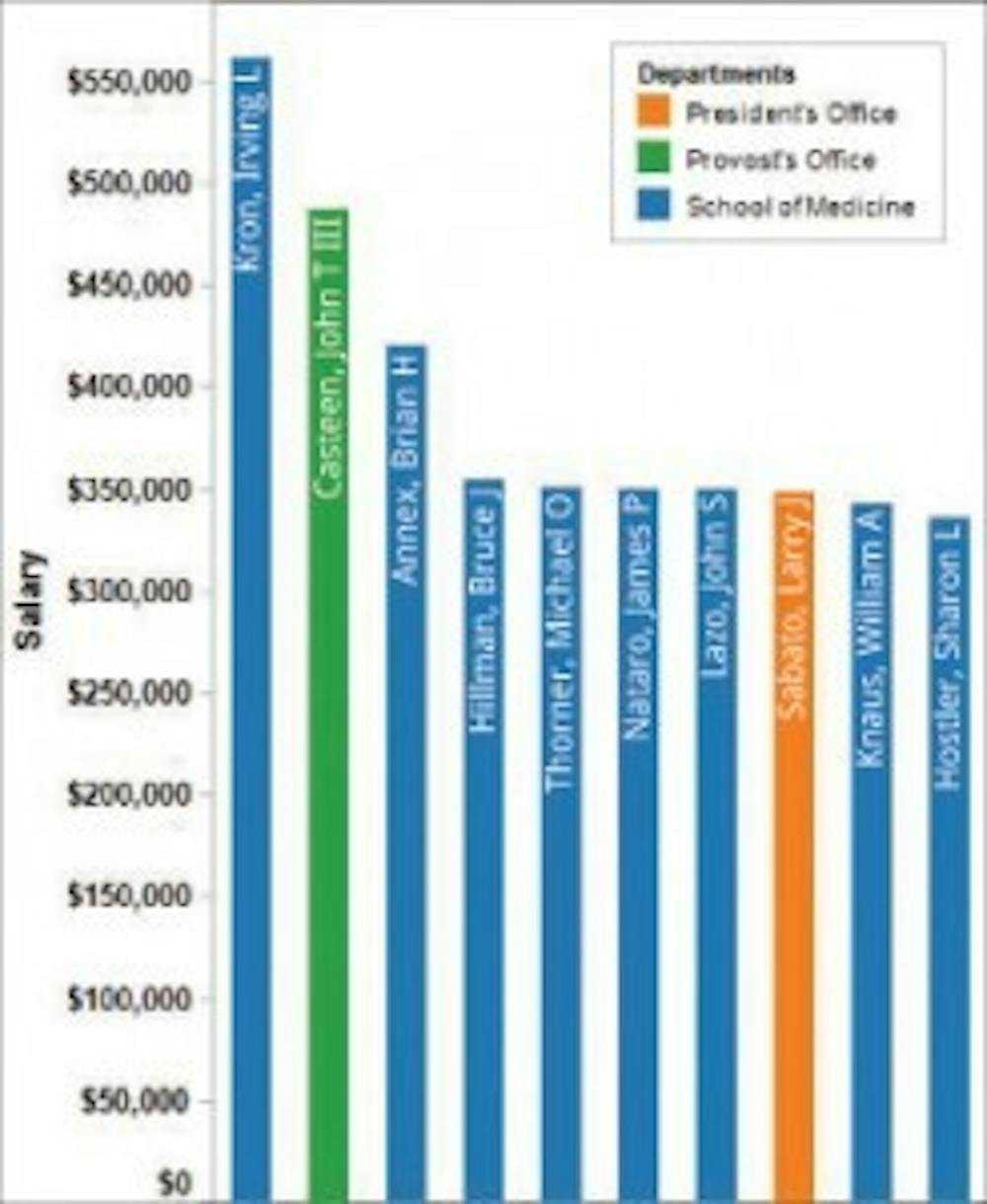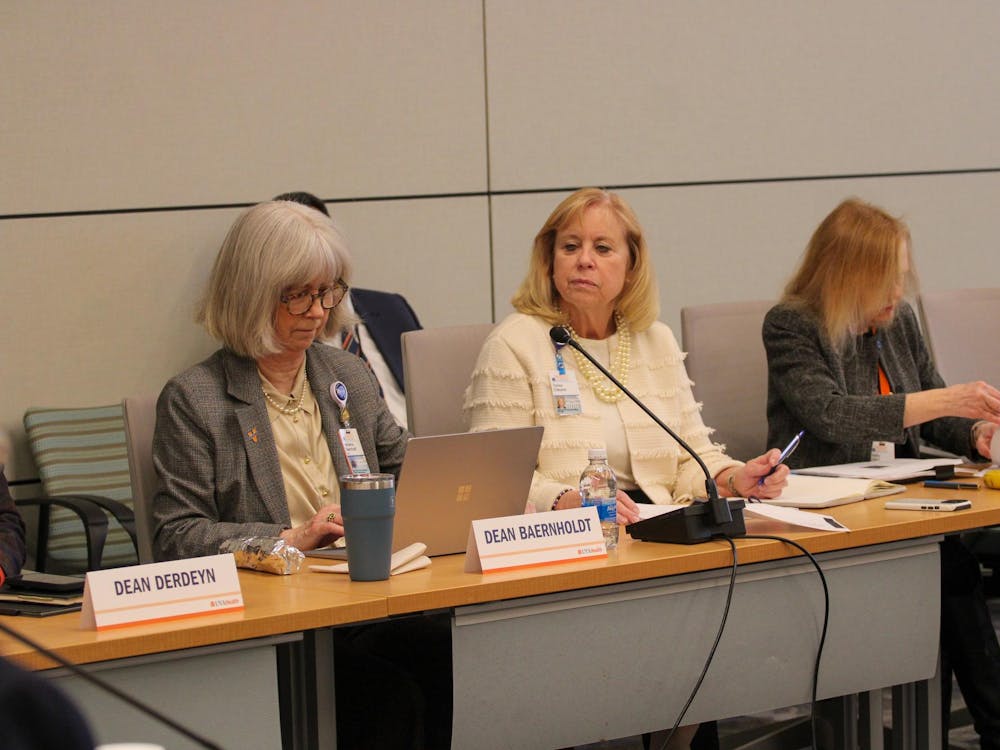The University pays full-time faculty higher salaries than all other higher-education institutions in Virginia despite a four-year state salary freeze, according to an annual report released yesterday by the American Association of University Professors.
The complete list of faculty salaries can be found here
The University pays full professors an average of $141,600, associate professors $95,000 and assistant professors $80,300, according to the AAUP report. All figures are more than 70 percent above the median for the data the AAUP collected from 1,251 accredited colleges and universities nationwide.
The survey also found a salary discrepancy between the University’s male and female faculty members. Full-time female professors are paid nearly $20,000 less on average than their male counterparts, making 87 percent of the average salary of a full-time male professor.
Like University teaching and research employees, University administrators, including University President Teresa A. Sullivan, also did not receive salary increases this year, University spokesperson Carol Wood said in an email.
The complete list of administrator salaries can be found here
“President Sullivan believed that in the wake of no state raises for University employees for the previous four years that the University’s vice presidents should decline to take any salary increases – in order to make more funds available for faculty and staff,” Wood said.
John Curtis, AAUP director of research and public policy, said even though the recession ended a couple years ago, the damaged economy continues to impact salary numbers.
Curtis said this is the third year of “historically low” faculty salaries.
“In general, full-time faculty salaries tended to be stagnant over the last couple of years,” Curtis said. “Salary increase was less than the rate of inflation, so in terms of purchasing power they [salary earnings] are less.”
University Executive Vice President and Provost John Simon said in an email the University does not offer cost-of-living salary increases which reflect inflation.
“We have not had the funds to do so, and we have focused what limited resources we do have on merit based pay increases to recognize performance,” Simon said.
Curtis said the data highlights a “long-term trend” of not providing competitive salaries, as well as the conversion of full-time positions into lower-paid part-time jobs.
“Faculty members aren’t being provided with sufficient support to do their work,” Curtis said.
Wood said salary poaching is a potential problem, as University salaries have fallen from the 70th percentile to below the 30th percentile in the AAUP report during the last five years.
Salary stagnation makes the University “susceptible to [the] raiding of our best faculty by our peer and aspirational peer institutions,” Wood said. Though state salaries have been frozen for four years, Wood said the University is able to hire new faculty at competitive rates.
Saranna Thornton, chair of the AAUP’s Committee on Economic Status of the Profession, said salary increases and tuition increases are not intrinsically linked.
“Politicians and other people in the press talk about how much tuition increase is related to salary increase for faculty members,” Thornton said. “That is absolutely not the case. The reduction of state appropriations [as a result of the economy] causes tuition increase.”
Curtis also said he believes the rise in faculty salaries does not necessarily correlate with tuition increases.
“A variety of components of spending – administrative salaries, the use of more non-instructional personnel, technology, and student amenities (residence halls, food services, athletic facilities), are major contributors to tuition increase,” Curtis said.
Wood said an individual’s performance, as well as years of experience, the complexity of the job and other factors, determine a person’s salary. “The more complex the job and the more education required to do the job, the greater the salary – which is why physicians are among the highest faculty earners,” she said.
Curtis said continued stagnation among academic salaries could mean the United States “will not be in a position to attract the most qualified individuals to academia.”
“It becomes a matter of reinvesting in higher education and specifically in the academic mission,” Curtis said.
The AAUP study is conducted annually and uses data collected from November to February.
Faculty Salaries
University of Virginia Faculty Salaries FY 2011-12 (PDF)
University of Virginia Faculty Salaries FY 2011-12 (Text)







